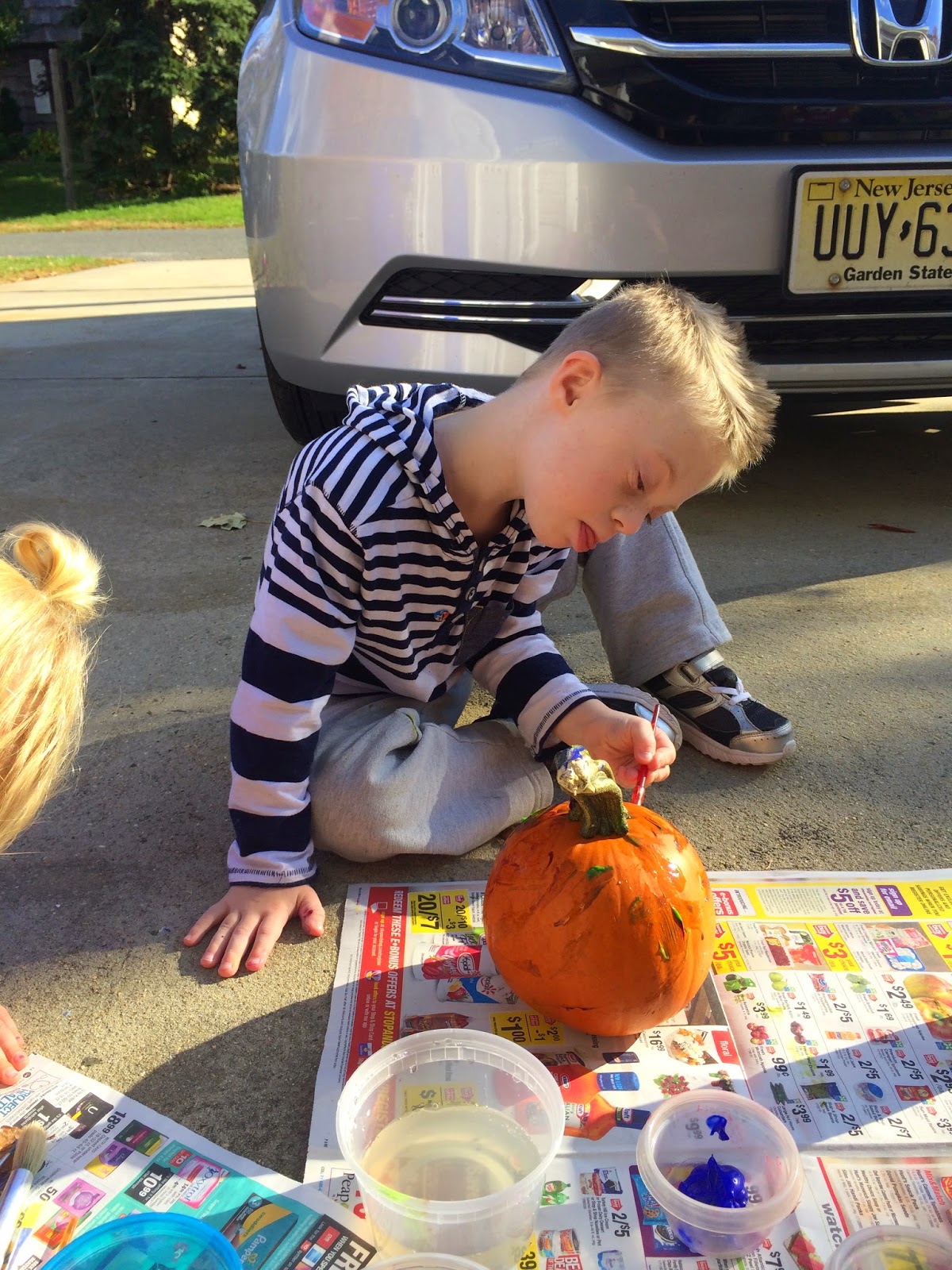In the last post that I wrote, I eluded to the fact that we have been dealing with some challenging behaviors with Colin. This has become a more recent challenge for us as they have worsened a bit with time. This has been quite stressful for me because it's never easy to hear the negative things that he does in a day. While we can actually explain most of the reasons to the behaviors, it's still difficult. At the last meeting we had with school, we were all in agreement that a lot of the causes to the behaviors were stemming from frustration. Some changes were made to his IEP and in addition, we consented to a FBA (functional behavior assessment) to be done by the district. In this case, a behaviorist comes in, observes the child in their environment and then develops a plan to deal with the behaviors.

In the meantime, I have spent a lot of time researching this topic, speaking with people more experienced with this than me, watching videos/webinars, and scouring different internet sites with the hopes that I may find some strategies that could assist us at home and Colin's teachers at school. I recently posted in a facebook group that I belong to specifically about inclusion for kids with Down Syndrome and received a lot of feedback but in particular, the most helpful piece of advice I got was to watch a video of a talk given by
Dr. David Stein at a conference on the topic of behavior in children with Down Syndrome. It was EXCELLENT and provided me with so much information that I found to be incredibly helpful. I included that video below because it truly is a valuable piece of research on this topic.
I have been hesitant on posting the specifics about Colin's behavior because I wasn't sure how I could post about the topic without my frustrations pouring out in the form of words on the screen. I have been incredibly emotional on the topic as I have seen so much change in Colin and fear that I haven't been able to "fix" it. However, this talk shed a LOT of light as to the scientific/medical reasons (differences in the brains of kids with DS versus their typical peers) behind the behaviors as well as other influencing factors. Because of the brain differences among kids with DS, the influencing factors include things like difficulty with executive functioning (reasons why kids with DS tend to be more impulsive), language, socially, information processing, and motivationally.

I felt better after watching the talk just because I had a better understanding as to why this is so challenging with Colin. Because of these differences, when things are frustrating and overwhelming for him, he is going to communicate in ways that might be different for him than they would be for typically developing children. The easy part is now in understanding but the hard part is still in the execution of the strategies to help improve upon the behaviors. I really liked Dr. Stein because he addressed some things that I found to be helpful for me emotionally. One point he touched on was the fact that while it's easy for him to explain all of this, he understands that the execution IS hard.

Some of the challenging behaviors include: yelling, hitting (when he's REALLY frustrated and it's mostly me that deals with that), running (he's doing it on purpose because he knows he's getting a reaction out of us) and avoiding doing things asked of him. A lot of the time you can tell he's frustrated. In school, the behaviors include crawling on the floor or going under his desk to avoid work, using his hands inappropriately, etc.

One simple change we have made at home is in utilizing a visual schedule. This is helpful because Colin can SEE what is coming next and we give him time to prepare and transition to the next thing. This is helpful for tasks he DOESN'T want to complete because then he usually sees something more motivational following the nonpreferred activity. Another strategy that Dr. Stein talks about is really in emphasizing the positive behaviors. In addition, unless it's something that needs to be addressed immediately because of a safety issue, trying not to address the negative behaviors (because even negative attention IS attention to that behavior).
The thing is, despite the fact that these behaviors are occurring, Colin is still his lovable sweet self. Even on the hardest days that I have had with him, he still has so many moments where he is being really good and we see our hard work paying off. He is helpful, loving, playful, fun, etc. It's not
all bad and discouraging.
In an alternate way to work on Colin following directions, we tried out an introductory lesson to Karate today. It was something we've been wanting to do for awhile and felt that Colin might benefit from it. He LOVED it and so we are looking forward to seeing the benefits of this kind of activity for him. I'll definitely keep you posted on that one!
So yes, dealing with this current challenge IS hard because it's a job that requires CONSTANT attention. We still see the positives and we will keep working...
































.JPG)
















